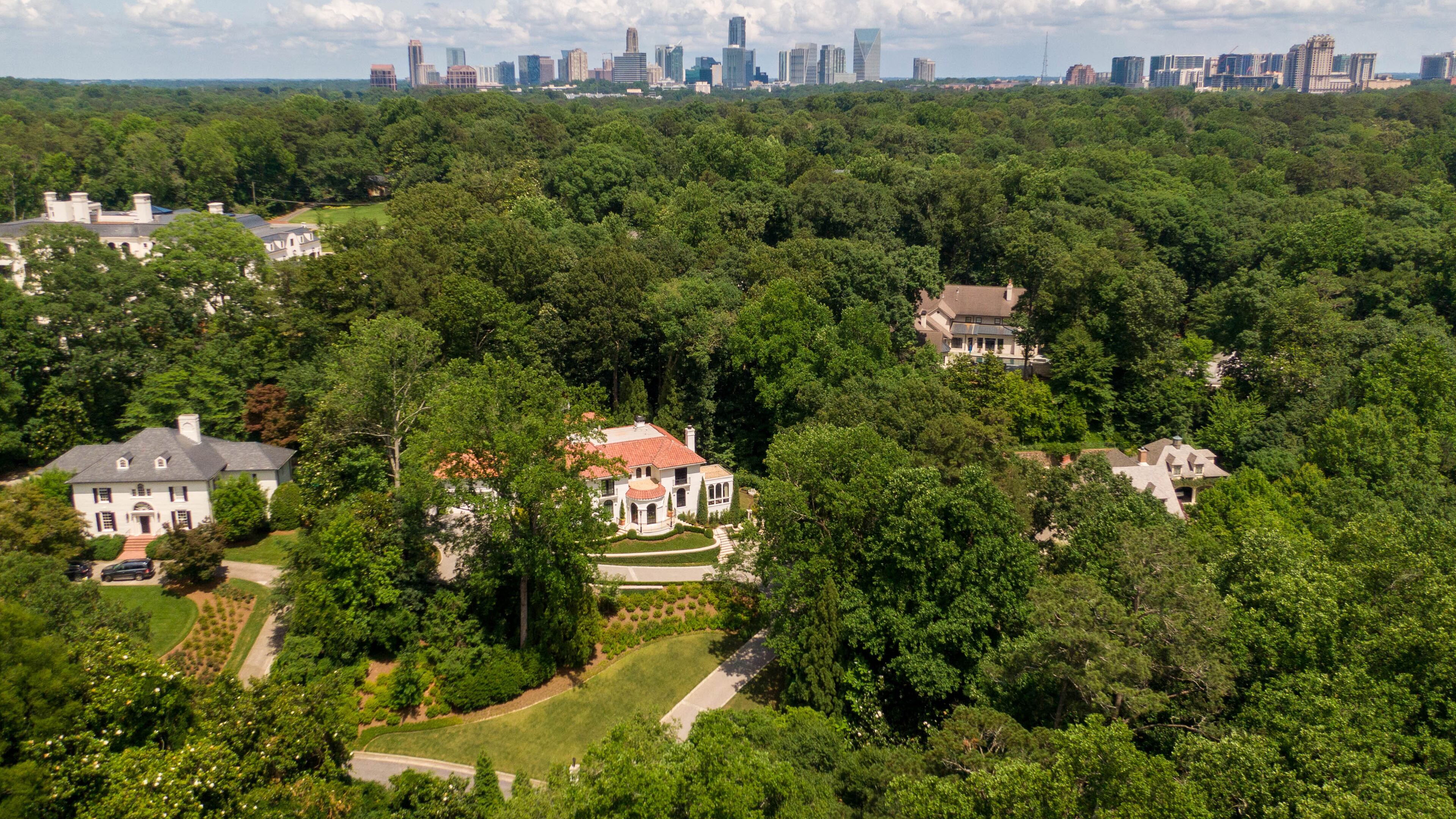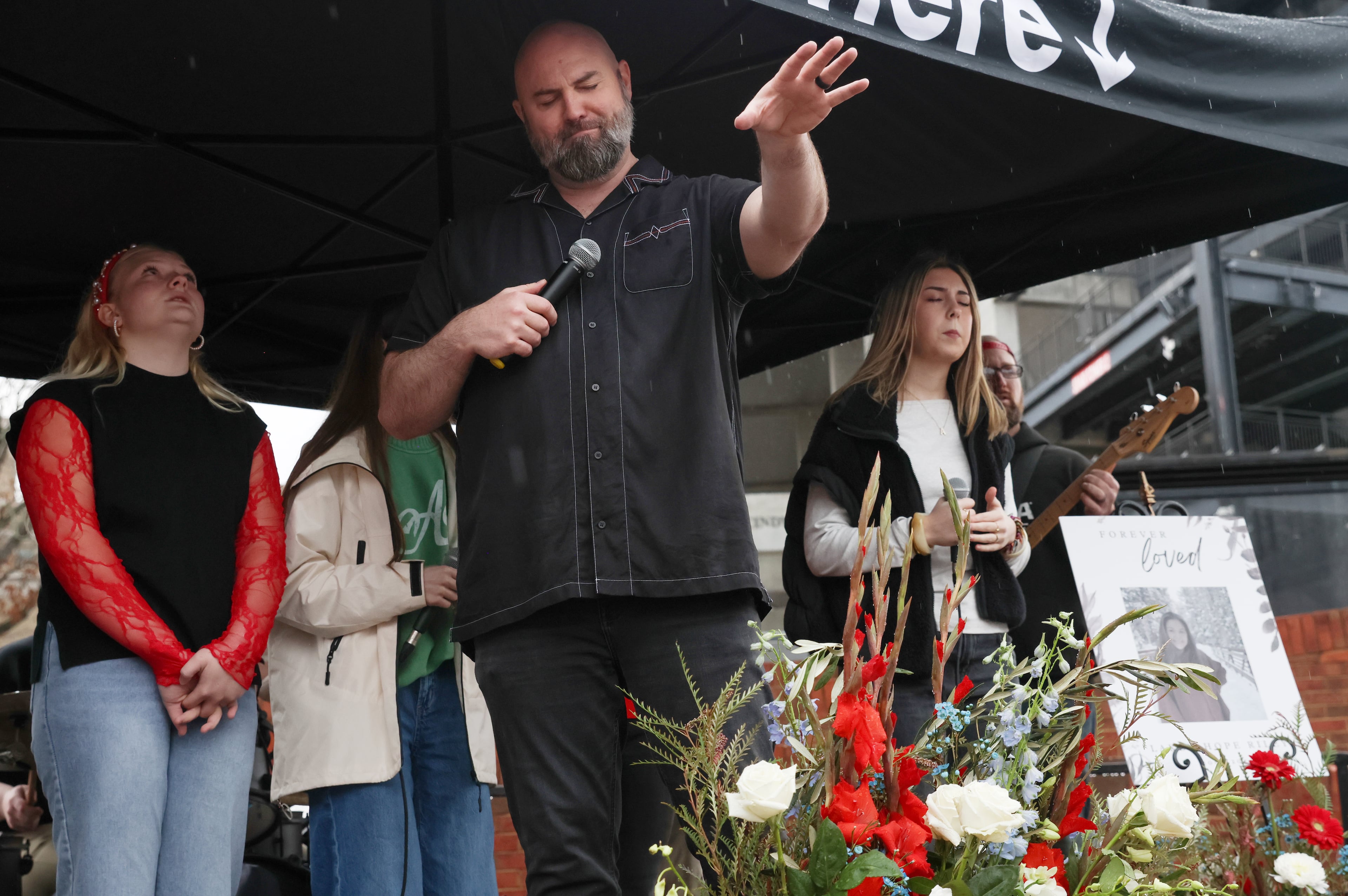As Atlanta’s new tree protection rules take shape, home builders push back

After years of grueling debate, Atlanta Department of City Planning officials indicated Thursday they are ready to move forward with a major revamp of Atlanta’s tree protection rules.
While environmental groups have generally been in favor of strengthening the code, some developers say they are still not on board with the shape of the latest proposals to protect the “city in the forest.”
Jim Cheeks, founder and CEO of Fortas Homes, an Atlanta builder specializing in affordable housing, said the potential tree removal fees for affordable housing projects “don’t work for what I do.”
“This ordinance does not balance tree preservation with housing,” Cheeks said at an Atlanta City Council work session Thursday updating stakeholders on the latest revisions.

Atlanta’s current tree ordinance, which contains the city’s rules for removing and replacing trees, was originally enacted in 2001. In nearly a quarter century, it’s only been tweaked a handful of times. Previous efforts at a wholesale rewrite have been torpedoed by disagreements between environmentalists and developers.
Atlanta has adopted a goal of 50% canopy coverage, but the city’s tree cover has been short of that mark for years.
In 2018, Georgia Tech researchers found the city’s canopy coverage stood at 46.5%, down 1.5 percentage points from 2008. Many tree advocates say they expect the next assessment, which could be released soon, will show coverage is now below 45%.
Atlanta’s trees are not just a point of pride. As human-caused climate change leads to more intense heat waves, studies show trees also help protect public health. A 2023 study commissioned by City Council members Liliana Bakhtiari and Matt Westmoreland found Atlanta’s most forested neighborhoods are dramatically cooler on hot days than those with few trees.
Extreme rainfall events are also on the rise, and forested areas help with stormwater management.
Higher fees, new preservation standards
City Planning Commissioner Jahnee Prince shared a draft of the revamped ordinance with City Council members and others involved in the rewrite effort late Thursday night.
At the City Council work session earlier in the day, Prince walked the council members and the public through the broad strokes of the changes.
The complex proposal includes higher fees for tree removals, known as recompense.
Under the current rules, developers can pay $100, plus $30 for each inch diameter of trunk to remove a tree, with fees capped at $5,000 per acre. The city says that is nowhere near enough to cover the cost of tree replacement, and tree advocates say it’s too low to discourage clear-cutting.

The draft gets rid of the per-acre cap and proposes a gradual increase to recompense over four years, from $120 per inch diameter of tree trunk removed to $260 in 2028. The fees would be lower for “non-priority” species and zero for invasives. Affordable housing units would be eligible for reduced fees, and developers can trim their recompense obligations by replanting trees themselves.
“We would rather have our developers plant trees and write us a check,” Prince said.
Fines for illegal tree removals, which have been a problem for years, would also increase from $60,000 per acre to $260,000.
The proposal would also create a tree preservation standard for single-family residential lots, which is where roughly 76% of Atlanta’s canopy is located. But unlike the draft ordinance released in January, the new version floated also creates a preservation standard for commercial lots.
“We’re not going to hit the 50% canopy goal without having preservation on our commercial lots,” Prince said.
A ‘difficult, complex piece of legislation’
Most tree advocates at Thursday’s meeting seemed pleased with the overall direction of the latest draft.
Developers largely did not.
Kevin Norton of Empire Communities, a large home builder with projects in several U.S. states and Canada, stoked fears that passing the ordinance could stop or slow development. Norton said his company supports increasing tree removal fees, but said they believe the current ordinance is “effective” and should be mostly left unchanged.
“If a new TPO (tree protection ordinance) is moved forward, we do strongly encourage project testing so that it can be further evaluated before we enact it,” Norton said.
It wasn’t the first time lately that developers have asked to table large chunks of the rewrite.
In a March letter addressed to Mayor Andre Dickens, the council members and city staff, the Council for Quality Growth — a nonprofit representing Atlanta’s “growth and development” industry — proposed increasing recompense now, but punting on most other parts of the rewrite.
Kathryn Kolb, a conservationist who leads one of several tree groups pushing to modernize the ordinance, urged developers to work toward a solution that can be passed now.
“We would love to see the development community step forward with a responsible approach, which is not to say that we can’t do it … but to really work with us to find a consensus to move forward in this direction,” Kolb said.

For the new ordinance to become law, City Council will have to vote to approve it.
On Thursday, some of the council members in attendance recognized the magnitude of the task before them.
“This is going to be — and I think my colleagues will agree with me — the most difficult, complex piece of legislation we will vote on this term,” Bakhtiari said.
The new draft is likely to come before the City Council’s Community Development and Human Services Committee when they meet later this month. If they pass the measure, it would move on to the full council.
Chet Tisdale, an environmental lawyer who serves on Atlanta’s tree commission, said Thursday that Atlanta cannot afford to wait any longer to protect its trees.
“This is the year City Council stands up and says, ‘We’re passing an ordinance that will save the city in the forest,’” he said.
A note of disclosure
This coverage is supported by a partnership with Green South Foundation and Journalism Funding Partners. You can learn more and support our climate reporting by donating at AJC.com/donate/climate.



